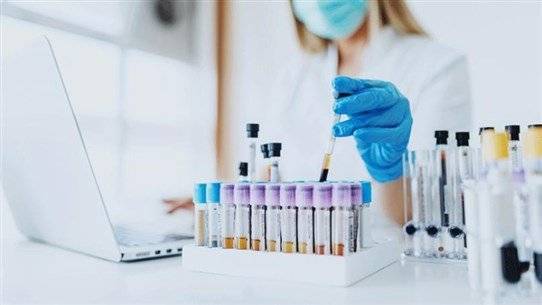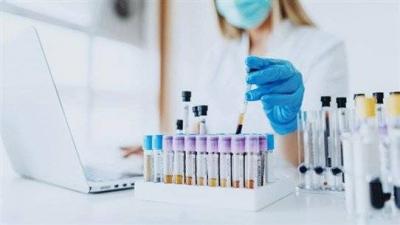Yesterday, a statement from a family and chronic diseases doctor named Mohammad Fahmy Kharoub on a television channel claimed the existence of two cases of "monkeypox" in Lebanon, creating an immediate panic reminiscent of the fear that accompanied the first case of COVID-19 two years ago. The doctor did not follow up his statement with any official confirmation from the Ministry of Public Health, which is responsible for such announcements. As of now, "there is nothing," as confirmed by Dr. Aatika Bri, head of the Ministry's preventive medicine department, who denies the existence of any confirmed or suspected monkeypox cases.
Moreover, diagnosing any suspected case requires tests that could take days before results are released. Today, due to the inability to diagnose infections because of a lack of testing supplies in Lebanon, obtaining test results may take "4 to 5 days at most," according to Bri, as the ministry is sending tests to "Pasteur" laboratories in France. Bri stated that the ministry is forced to follow this procedure while awaiting the arrival of the necessary diagnostic supplies, expected in two weeks.
### Isolation Center Preparation
Thus, there are currently no confirmed or suspected cases, but this does not preclude the isolation of individuals who may exhibit symptoms. Consequently, Bri mentioned that the ministry has reinstated the isolation center at the Beirut Governmental University Hospital in preparation for the upcoming phase. This is the phase that Dr. Kharoub mentioned in his television appearance. He later clarified his previous comments, stating that he did not confirm any cases but had very strong indications suggesting a possible case, and that in order to affirm or deny this, he would need to conduct the necessary tests. Nevertheless, he confirmed that the goal of his appearance was to "ring the alarm so that history does not repeat itself, as it did with the coronavirus," especially since "we should be vigilant and ready like other countries that rushed to establish protocols for dealing with infected cases and the community," lamenting "that this is not the case in Lebanon."
### Difficulty of Disease Transmission
Regardless of any shortcomings, it is essential to address the question of the disease's danger. Bri reassures citizens that this disease differs from the coronavirus in terms of transmission speed and mortality rate. She pointed out that the death rate from this disease is less than 1%, and that transmission does not occur rapidly; direct and strong contact is required between the patient and the contact. The virus can be transmitted "either through blood, bodily fluids, or respiratory secretions, and this does not occur from the first encounter; it requires repeated and direct exposure." Moreover, symptoms do not appear quickly after infection, with an incubation period estimated at one to three weeks, during which the infected individual is not contagious until symptoms begin to manifest, Bri confirms.
### Vaccine Unavailability
As for the symptoms, they are primarily four: fever, swollen lymph nodes, headache, and rash. There is no specific treatment for the disease, and sometimes these symptoms may pass without causing significant issues. Monkeypox also shares similarities with COVID-19 regarding the most vulnerable individuals, primarily those with chronic diseases, and now includes those who have not previously received the vaccine against it. According to Sharaf Abu Sharaf, head of the doctors' syndicate in Beirut, this vulnerable group is primarily those born in the 1980s and older, as they did not receive the vaccine, unlike those born in the 1970s and earlier, given that the disease was eradicated around 1977, with the last doses of the vaccine administered in the late 1970s.
Today, the monkeypox vaccine is only available in biological weapon laboratories, according to Bri, and it can potentially be reproduced to face any emerging threat from the main infection. On the other hand, Bri refuted the notion that "waterpox" vaccines, which are currently available, would be effective against "monkeypox," stating that they do not cover this type of smallpox.




